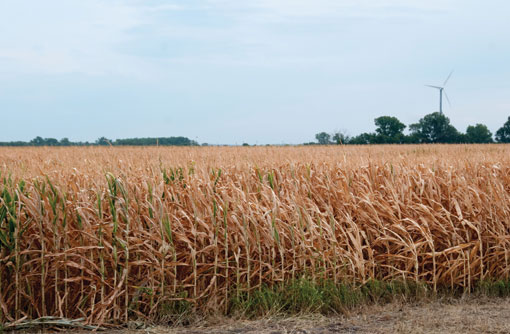Drought data highlights fallout in supply chain

Supply chains need to work together on water stewardship to protect farmers and food businesses from drought, a new report recommends.
The Impact of Crisis on Water Stewardship in the UK Food and Grocery Industry by researcher IGD, looked at how a water shortage could affect supply chains and food production in the future.
Working with a range of organisations such as supermarkets, the NFU, food manufacturers and academic institutions, IGD took a fictional crisis scenario for 2022 based on the drought of 2011/12 and analysed the effect it would have on businesses and industry sectors.
While government had a part to play, the responsibility for controlling water use lies across the whole industry, said IGD.
“Looking at water stewardship will be of huge benefit to farmers,” said Alan Hayes, senior sustainability analyst at IGD.
“Farmers and other primary producers need to talk to their customers to help them understand the impact of drought. One of the ways of doing this is getting together as producer groups.
“It’s a matter of awareness. If we have a repeat of 2012 we may not have the supply in the future. Demand for water continues to grow and, after the weather we saw earlier this year, now is a great time to have this debate.”
Effects of drought across the supply chain and beyond
Individual business impacts
- Volatile and increasing raw material costs are likely to emerge from agriculture impacting the supply chain and customer prices.
- Shareholder activism on water risks is likely to increase as it becomes more material to the performance of businesses.
- Drought could become a driver of further agricultural consolidation as the industry seeks to mitigate the risks posed by drought, and justify investments in irrigation.
Individual business impacts
- Individual businesses will have to manage increased direct costs from variability in raw material supply and quality.
- Failure to supply due to drought will lead to loss of revenue and potential loss of customers, and ultimately the failure of businesses.
- Water availability will become a strategic risk for businesses which are directly water-constrained during drought.
- Reputational risks will increase as stakeholders, media and NGOs all put individual businesses and the industry as a whole under greater scrutiny.
Broader impacts
- There is potential for enactment of UK government emergency powers on non-essential water use and on water resource allocation more broadly in times of drought.
- Decisions about resource allocation for industry, environment and food are likely to become political more than analytical.
- Consumer preferences and shopping habits may change in response to variations in quality and availability of foods due to drought.
- The potential for increased reliance on technology, including genetic modification, to provide drought-resistant foods will need to be managed sensitively with consumers, NGOs and media.
- The need to maintain trust with consumers about drought and its impacts will become more important as better informed consumers seek to hold the industry to account for its water use.
More on this topic
- Individual businesses will have to manage increased direct costs from variability in raw material supply and quality.
